Advertisement
Card Collector Revisits Racist Incident Behind Garry Templeton's 1981 Suspension
Resume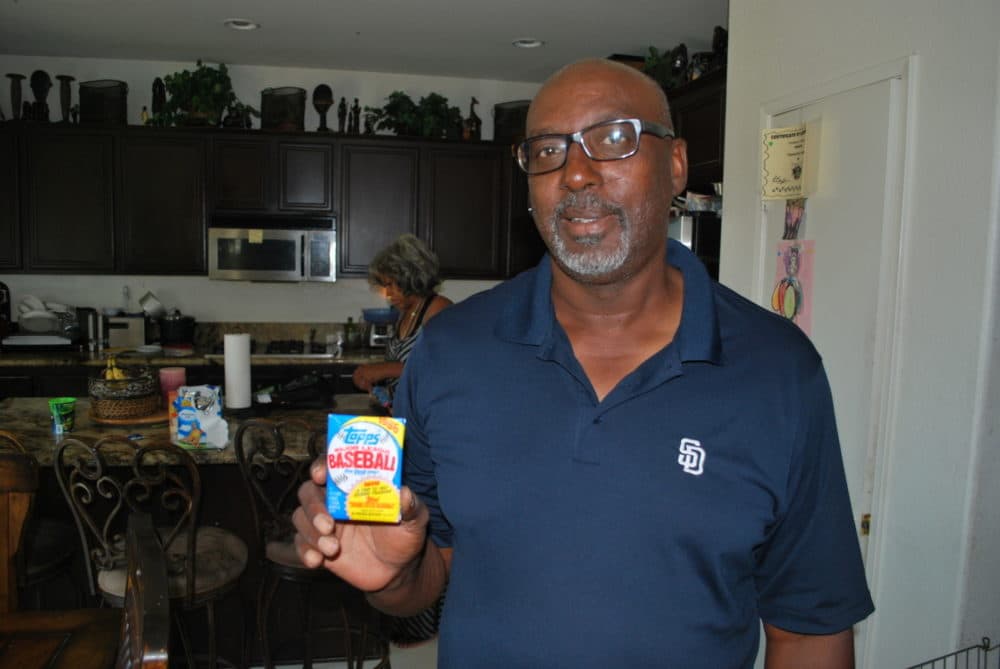
In 1986, when he was 5-years-old, Brad Balukjian started collecting baseball cards.
"I would buy the wax packs from the local pharmacy with a stick of gum," Balukjian says. "I had my favorite players who were not the superstars. They were the more underdog-type guys."
Balukjian grew up to be a college professor who collected bugs instead of baseball cards. But in 2014, he turned his attention back to his childhood obsession.
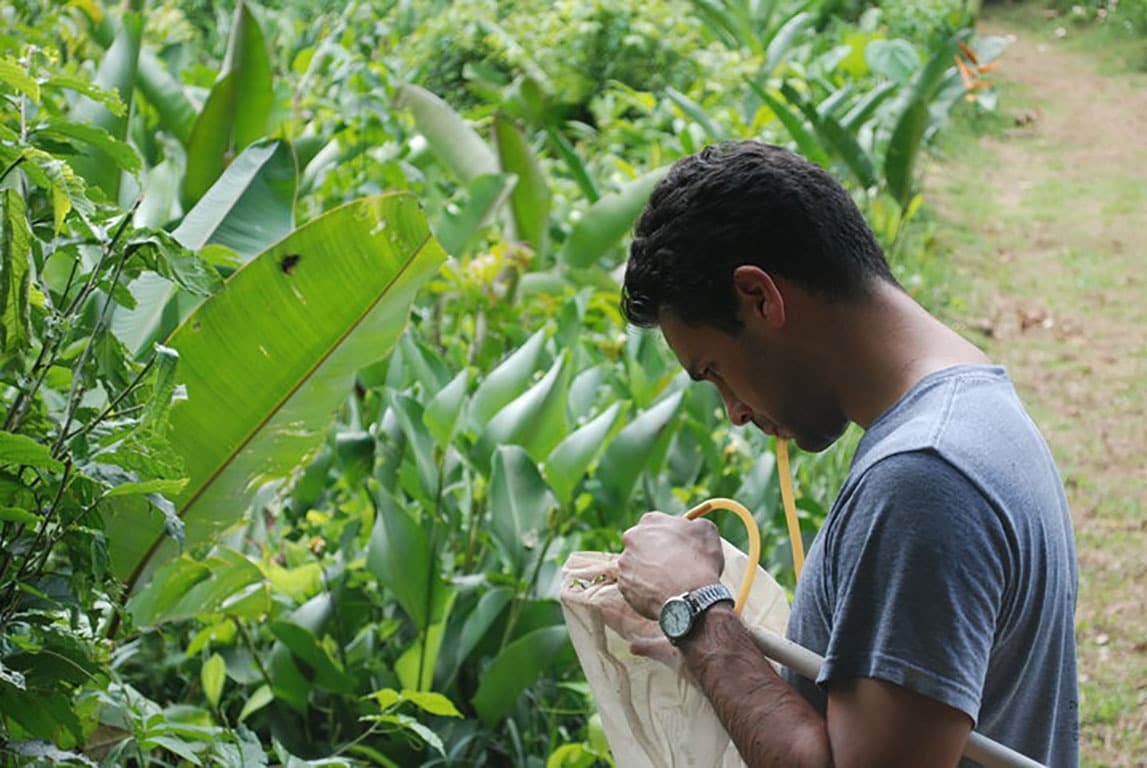
"The guys that I grew up following, I never really stopped thinking about them," Balukjian says. "I was always drawn to wanting to know the stories of those players. Where are they now?"
Balukjian took his boxed-up cards out of storage and started formulating a plan to learn firsthand about players — or at least some of them.
"So I thought a good way to get at this question of, you know, 'What happened to these guys that I grew up with?' would be to get a pack, and, whatever guys are in that pack, those should be the guys that I would track down," Balukjian says.
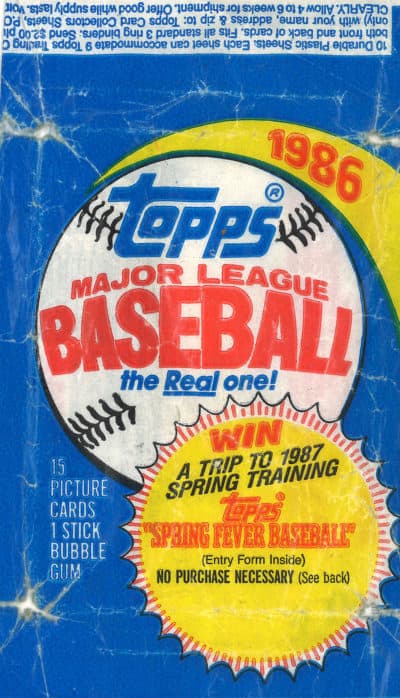
"I mean, that kind of captures the thrill that we experience as kids opening baseball cards, which was: you don't know who you're going to get. And, you know, it's these series of surprises."
So Balukjian bought an unopened 1986 Topps pack on eBay. When it arrived, he removed the wax wrapper and popped the decades-old stick of gum into his mouth. He says it tasted "delightfully gross."
The pack included one player, Al Cowens, who died in 2002. But the remaining 13 cards were of living players, a group Balukjian calls "a tantalizing mix of greatness and mediocrity."
Road Trip
Brad Balukjian began planning a 49-day road trip for the summer of 2015. He would drive his 2002 Honda Accord from his home in Oakland, down the West Coast, across the South, into the Northeast and back again. His goal was to have a meaningful conversation with each former player about his life now.
Balukjian's first stop was with Rance Mulliniks. He says Mulliniks was "gracious, understated, humble, accommodating."
He also met with his childhood hero, former Phillies pitcher Don Carman. And also with Randy Ready, Steve Yeager, Jaime Cocanower, Lee Mazzilli, Richie Hebner, who he characterized as …
"Guarded."
... and Rick Sutcliffe.
"Outgoing, extroverted. What you see is what you get."
The abstainers were Gary Pettis, Vince Coleman and the famous, and famously reclusive, Dwight Gooden and Carlton Fisk.
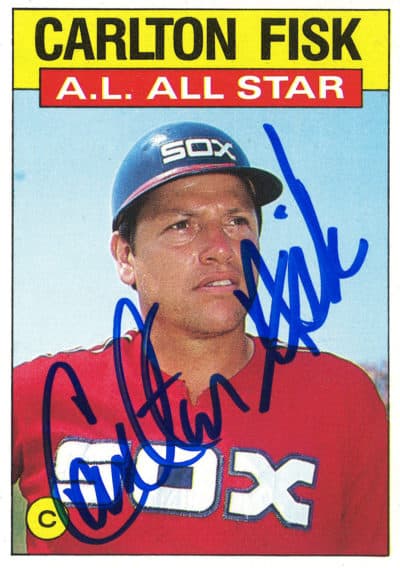
"I’m disappointed that Fisk was not willing to cooperate," Balukjian says.
He did manage to spend time with nine of the 13 living players from his 1986 wax pack. But on his 49-day road trip, Balukjian had one meeting that feels particularly relevant today.
On June 24, 2015, Balukjian arrived in San Marcos, California, where Garry Templeton now lives. A few months earlier, Balukjian had contacted Templeton and told him about his plan.
"[At] first I thought it was, like, a little cuckoo," Templeton says. "And I didn't know if he was for real or not."
When the pair met at a local restaurant and began to chat, Balukjian says he was nervous, because he wanted to ask Templeton about a controversy from his days as a player for St. Louis.
"Other writers had asked him about it, and he seemed to not volunteer anything," Balukjian says. "So I just came out and said, 'I want to talk to you about the Whitey Herzog incident.' "
"It's water under the bridge," Templeton says. "But, you know, it's something that he wanted to know. So, you know, I just told him the truth on what exactly I remember from the incident."
'I Don't Want You Hurting Yourself'
Here’s the story: In 1981, Garry Templeton was a two-time All-Star.
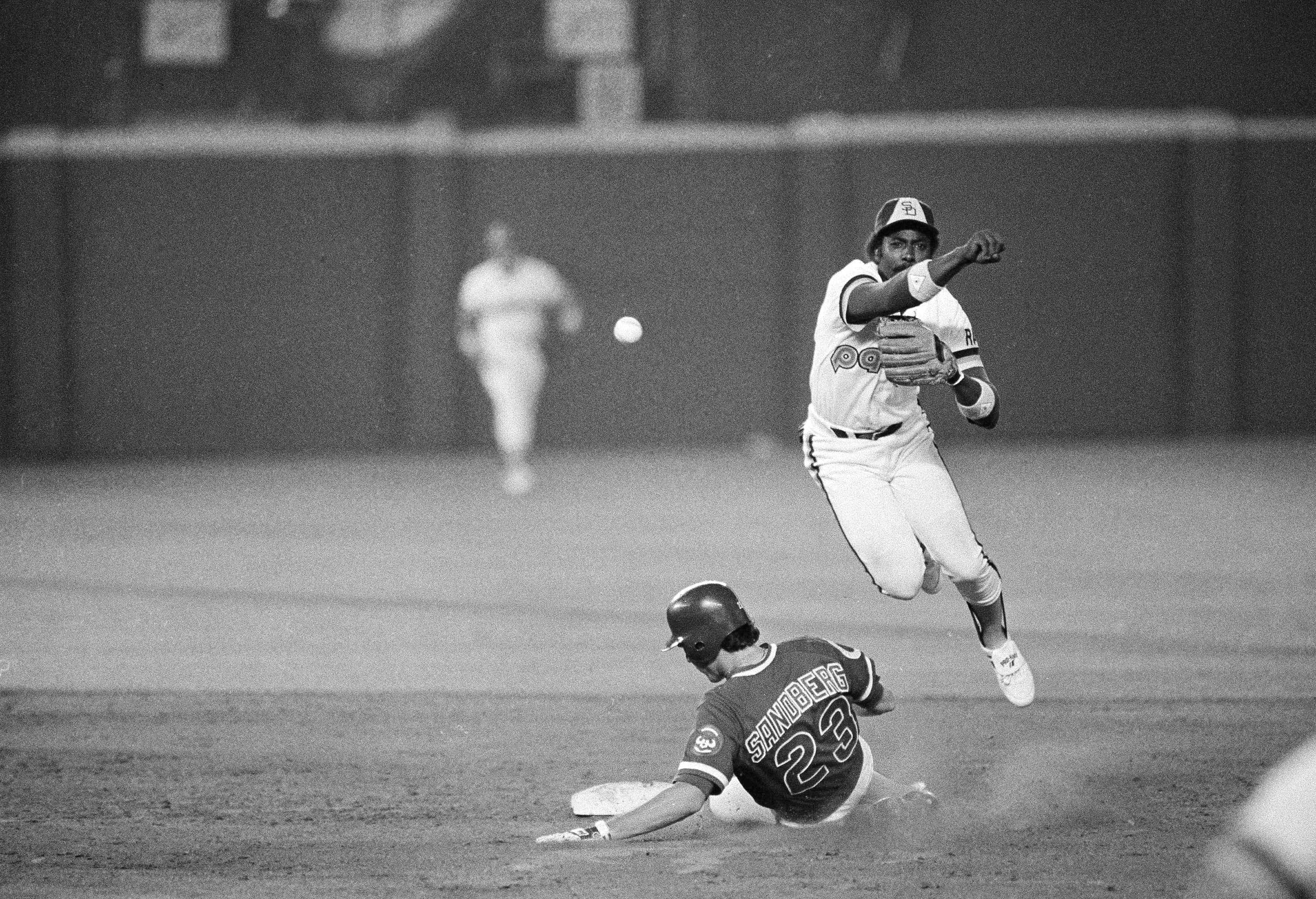
Templeton was being paid more than any player in Cardinals history. But during the 1981 season, he hadn’t been playing well. In late August, he went to team physicians.
"And the Cardinal doctors told me that I had torn cartilage in my knee, and I had sprained some ligaments in my ankle," Templeton says.
The Cardinals were leading their division and battling with the Dodgers for the best overall record in the National League when Templeton and team doctors brought the extent of his injuries to the attention of Cardinals manager Whitey Herzog.
"And Whitey told me, 'Look, we're gonna need you down the stretch. So I don't want you hurting yourself. So if you hit a routine ball and you know you’re out, just take your time getting down to first base. Because I don't want you hurting yourself.' "
On August 26, the Cardinals hosted the San Francisco Giants. In the first inning, Templeton struck out swinging on a curveball in the dirt. The ball got by the catcher, but Templeton didn’t run to first base. The Cardinal had committed a baseball sin.
But he says he was just doing what his manager had told him to do.
"Of course, the fans don't know that," Balukjian says. "Their perception is that he's just being lazy, and he's loafing."
Templeton returned to the dugout.
"I mean, the fans are booing me and screaming and yelling at me," Templeton says. "And I'm like, 'What the heck is going on?' "
A group of particularly abusive fans had moved to the front row. Some were screaming the n-word at him.
"I moved on ... because nothing good ever comes from hating on stuff that you can't change."
Garry Templeton
"Whitey was right there, watching the whole damn thing," Templeton says. "Because they were closer to Whitey than to me. They're throwing ice and all kinds of stuff at me. And that's when I stuck my hand up and flipped them off."
"Templeton wouldn't tell me exactly what else they said," Balukjian says.
He didn’t want to tell me, either.
But, according to reports, the hecklers continued from the stands. In the third inning, Templeton had had enough.
"And I was telling them [to] bring their a-- out here on the field and whatever, and that's when I grabbed my crotch. And the home plate umpire noticed it," Templeton says. "And Bruce Froemming threw me out of the game."
Templeton walked back to the Cardinals dugout amid a torrent of abuse. When he arrived, Whitey Herzog grabbed him by the jersey and violently pulled him off of the field and down the steps.
The story made national headlines.
"And the way that this is depicted in the press the next day is that Templeton got booed for being lazy, and then he just flips out and starts flipping off the crowd," Balukjian says. "What is not included in there is a description of all the horrible racial things that were hurled at him by the fans. And what especially upset Templeton was that Whitey Herzog, other players, they also heard what was being said."
"I don’t know why nobody’s ever said anything about it," Templeton says. "But they were right there. The two bat boys heard the whole thing. Later on, they were like, 'Yeah, Garry, we heard it. But we couldn't say nothing.' They were saving their jobs."
When the story was reported in the papers, Templeton says only one half of it came out.
"So, you know, they were just going by what Whitey Herzog told them, you know? And, whatever Whitey said, I guess back then was gospel," Templeton says.
Templeton was suspended for three weeks and fined $5,000. In order to return to the team, he was required to undergo evaluation.
"And then they put him in this psychiatric ward for a while, trying to analyze what was 'wrong' with him and diagnose him," Balukjian says. "And this is where Templeton basically says, 'I was in there playing ping pong all day. There was nothing wrong.' But, essentially, in order to rejoin the team a couple weeks later, they had to have the company line, which is that he was depressed or he was struggling with, you know, some kind of chemical imbalance. And he basically just toed the line and said, 'OK, fine, if that's what I need to do to get back on the field? Sure, I'm 'depressed.' "
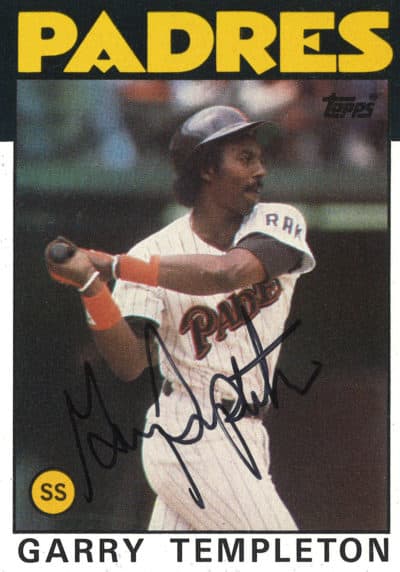
Balukjian says Templeton didn’t want to go into the details of that stay.
"And I think, largely, that the incident stained his legacy for the rest of his career. Which is so unfortunate because, again, when you know the whole story and the bigger context, I think it's just terribly unfair that that's how it went down."
Garry Templeton was traded to the Padres after the 1981 season. He played another 10 seasons, and even made an All-Star team for the third time in his career.
As for the incident on August 26, 1981, he says he’s not proud of it. And he doesn't like talking about it.
"I moved on," Templeton says. "I mean, because nothing good ever comes from hating on stuff that you can't change. So I just move on in life."
'It's Not About The Baseball Card'
Following his playing days, Templeton coached and managed for two decades. These days, he golfs and spends time with his grandkids near San Diego.
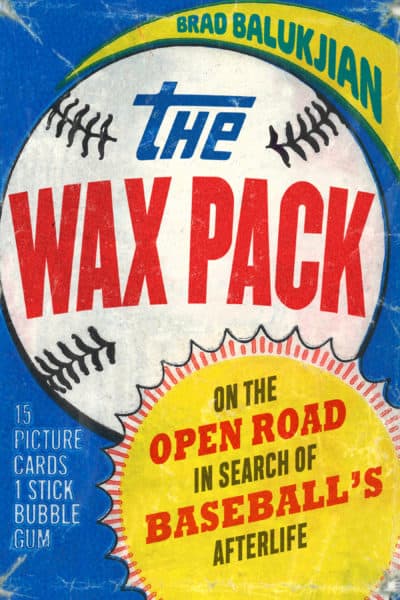
Five years have passed since Brad Balukjian's 49-day road trip, and he's had time to reflect on what he learned about pro ball players.
"To some extent, I was still seeing them through the 8-year-old's eyes. But the things that were most impressive about them now are their ability to be vulnerable and to be open and to share some of their struggles.
"Collectibles are nice, autographs are nice, but, you know, it's not about the object, it's not about the baseball card," Balukjian says. "It's about now knowing the actual human beings that are depicted on those cards."
But, of course, Garry Templeton already knew that.
"Major Leaguers are people, they're human beings. I mean, they got hearts, too.
"They hurt."
Brad Balukjian’s book is "The Wax Pack: On the Open Road In Search Of Baseball’s Afterlife."
This segment aired on June 6, 2020.
